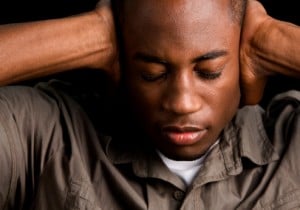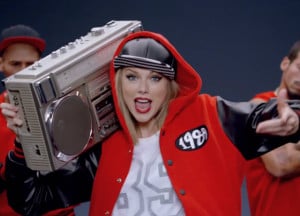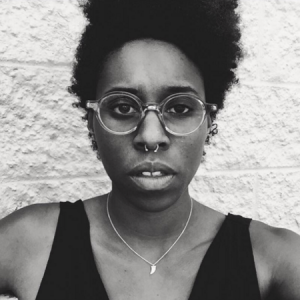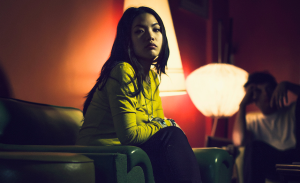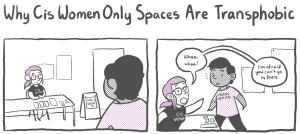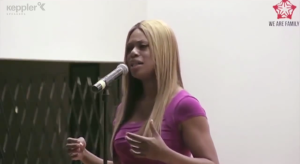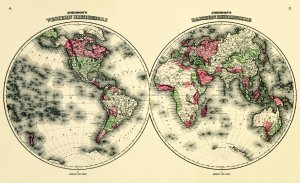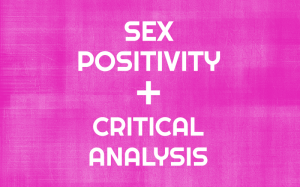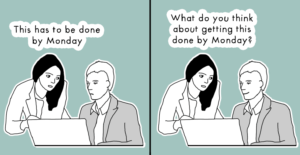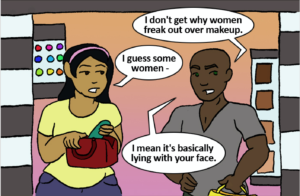
Source: Our Feminist Playschool
As a feminist, an activist, a parent of two boys, and a sexual health educator, I frequently find myself struggling with how to balance my sensibilities with my parenting style.
I am sex-positive, very liberal, and determined that my sons will grow into kind, thoughtful, open-minded men who will treat others with respect and will advocate for those who are oppressed by our society.
And an issue that I am very connected to is rape culture.
My years of teaching around sexuality have made me very aware of how large a role this plays in our society’s treatment of gender and how prevalent issues such as victim-blaming truly are.
About a year ago, when the furor around Steubenville was reaching a peak, I founded an organization, People Against Rape Culture, whose goal is to create widespread change around rape culture within our society through education, advocacy, and collaboration.
One of the reasons why I was compelled to create this group was because of my role as a parent – especially a parent of boys.
As my boys grow, I find myself constantly reevaluating the ways in which I parent them.
One issue that’s particularly challenging is the media that they consume.
Media literacy (or critical thinking about media portrayals of sexuality, race, and gender) is a favorite topic of mine in my teaching. Largely because of that, I think my sons already have a pretty good lens through which to critique the media, But I still feel a lot of discomfort around the overwhelming levels of messaging they receive in TV, movies, video games, and books.
Over the years, I’ve relaxed my restrictions on what they can consume, but I still refuse to allow many of the worst offenders (primarily movies and video games) into my home.
My sons have come to terms with this, but I think it’s only because they know that I’m not so much trying to protect them from seeing these things, but because I feel strongly that we shouldn’t support this type of messaging.
It’s funny because, as a sexual health educator, I have often found myself in the position of being the person who advocates allowing young people access to sexual content in the media (with, of course, conditions of developmental appropriateness – meaning they can understand what is happening – and lots of conversation with a trusted adult about what they see and what it might mean).
I get especially frustrated that movies in particular are often rated as only appropriate for older teens because of sexual content, while depictions of extreme violence seem to be approved for younger and younger audiences. It’s often very hard to determine what the vague ratings “explanations” really mean as well.
But often, what upsets me isn’t the “sexual situation” that’s being shown, but the overwhelming cultural messages that are embedded throughout the film or TV show, which frequently fall under the definition of rape culture.
These messages range from portraying women as liars and manipulators to scenes in which women are only valued for sex (and whenever a woman is turning down a man’s sexual advances, she is a bitch or a gold-digger) to the overwhelming portrayal of men as violent, hyper-masculine, and only ever interested in conquests of women for sex.
How does a parent compete with this constant assault of stereotypes and overwhelming sex-negative messaging?
Here are a few suggestions.
1. Conversation
Because of my background, this is something that we have been doing with our boys since they were very young.
We’ve always talked to our children – openly, honestly and age-appropriately – about sexuality and gender. And I’ve always found opportunities to use “teachable moments” which come up all the time – especially if you allow your children to watch television or go online.
So from a very young age, my boys came to expect my frustrated outbursts when a sexist commercial or comment came up during one of their cartoons. And they learned very quickly how to watch media with a critical eye.
Recently, a commercial for the new bow and arrow toy from Nerf being marketed to young girls in an attempt to capitalize on the success of Katniss from The Hunger Games, the “Rebelle Heartbreaker Bow,” came on.
Both of my boys immediately voiced the same ridicule I felt about the product, saying, “Why does it have to be a ‘heartbreaker’ bow? That’s not at all what Katniss stands for!” and “Mama, you’re gonna be mad about this one!”
They were right.
But I was also proud of them for recognizing the implied messages, and questioning them immediately, before I’d even said anything.
I also talk to them about why I don’t allow them to watch or play certain things – because I don’t want to support those aspects of our culture.
If they go to a friend’s house, and that friend wants to watch or play something that I don’t typically approve of, we can talk about why I don’t like it, but I won’t forbid them from joining their friends.
I just make sure that we have some conversations about what they saw and what they thought about it.
This is my opportunity to further share my values with them and to deepen their understanding of how to think critically about what they see.
2. Modeling
The other night, I was walking to my car with my nine- year-old son, alone, after dark, and an older man on a bicycle who happened to be riding by decided to cat call me.
I don’t know if he didn’t see my son, or saw him and didn’t care, but I was furious. I informed him in no uncertain terms that his behavior was unacceptable (and not very eloquently, I must admit).
My young son was shocked by my reaction, because he hadn’t really picked up on what the guy was saying to me and because he doesn’t often see me yell at strangers. So I had to explain to him why I was so upset.
And while I was initially embarrassed and angry about the incident, I realized quickly that there was probably some benefit to my son having witnessed that, because he now knows that street harassment is not okay.
It makes women uncomfortable and angry, and it is not a way to “compliment” someone you find attractive.
I’m pretty sure he will carry this with him as he grows into an adult, and it will be one more way that he will respect women.
3. Restricting (Some) Media
This one is a bit tricky for two reasons.
First, we all know that we can’t monitor everything that our kids see. Once they start going out into the world, they are going to see things that we don’t like.
And it’s also incredibly easy (and common) for them to stumble onto things that may not be age-appropriate.
Second, I’m not a big fan of censorship or restrictions, generally speaking.
And as children grow and mature, I think it’s better for them to be exposed to those things in situations in which they have a trusted adult to help them work through what they’re seeing and what it means.
I would much rather my children see these things through my lens than through someone else’s.
That said, I don’t think that giving them indiscriminate access to portrayals of sexism, violence, gender, or race stereotypes and oversexualization is healthy.
And I think that parents needs to be informed, so that they can have some ideas about what is acceptable for their individual children at any given time.
So my solution is to be informed, to restrict certain things with lots of conversations about why, and to keep a willingness to listen and be open-minded when they push back.
It can be hard to realize the ways in which our children are maturing and growing, so sometimes they need to give us a wake-up call. And we need to be open to that.
Then, when I think they’re ready, we can watch together, so that we can talk through anything that’s uncomfortable (or if we’re not together, we can talk before and/or after). This way they know it’s not something to just be glossed over.
The ways in which people and situations are portrayed in the media can influence us, so it’s important to be aware and think critically.
So far, when this has happened, I’ve been quite impressed with the things my sons notice and the ways in which they critique them.
***
My goal is to give my sons the tools to handle situations as they arise, even when I’m not necessarily going to be there in that moment to guide them.
I want to ensure that when their friends say or do something that is a product of or feeds into rape culture or sexism, they will be able to speak up and stand up when it counts.
Because if we want to change rape culture in meaningful and lasting ways, one very important key is educating our youth.
As parents, the desire to protect is strong.
But if we aren’t educating our kids on the issues that they will face – as well as the intricacies of navigating sexual relationships, consent, and respect for themselves and others – we are actually doing them harm.
Social pressures are great. And standing up for your beliefs in the face of these pressures, especially with people you consider friends, is hard to do.
But if you’ve received messages and modeling from adults you trust about the importance of doing this, and been given the opportunity to think critically about these issues from a young age, the likelihood of doing the right thing goes up exponentially.
[do_widget id=”text-101″]
Want to discuss this further? Login to our online forum and start a post! If you’re not already registered as a forum user, please register first here.
Christine Gordon is an educator, social activist, and a doula. She holds an M.A. in Sociology and a Graduate Certificate in Women’s, Gender, and Sexuality Studies from American University, and a BFA in Theatre from Virginia Commonwealth University. She recently founded an organization, People Against Rape Culture (PARC), dedicated to changing rape culture, and creating a culture of respect, consent and positive sexuality. She is also a parent of two awesome kids and lucky enough to have an amazing partner who supports her frequently unconventional approach to life and puts up with her night owl tendencies. In her spare time, she goes on adventures, moves around the world, tries to figure out how to travel with cats, hangs out with dear friends, reads, and occasionally gardens.
Search our 3000+ articles!
Read our articles about:
Our online racial justice training
Used by hundreds of universities, non-profits, and businesses.
Click to learn more







